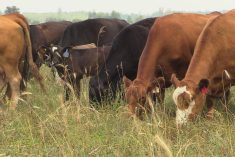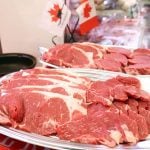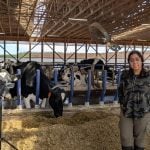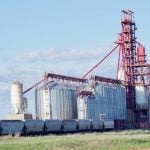Western Canadian feeder cattle prices were quite variable over the past week. Cattle weighing over 700 lbs. were under pressure while calves appeared to trade steady with week-ago levels. The Calgary Stampede period is one week that cattle men and women don’t worry about markets and just enjoy the celebration of fine culture.
Small groups of steers from 800 to 825 lbs. were trading in the range of $170-$185 in central Alberta. There was a subdued tone overall on heavier replacements because we’re only a month away from the early yearling run. Cattle on offer are bearing heavier flesh levels and there is no need to be aggressive due to weakness in the deferred live cattle futures. We’re entering the third quarter and the market could drop another leg lower with the surge in beef production. However, Angus-based steers averaging just under 950 lbs. were quoted at $170 in central Alberta which set the lower floor of the market. Fed cattle prices were also unchanged; Alberta packers were showing bids from $144 to $148 but comments from the industry suggest nearby demand is covered and cattle will only be picked up in August. These last pounds are costly and margins are struggling so it’s inevitable feedlots will back away from replacements in the current environment.
Read Also
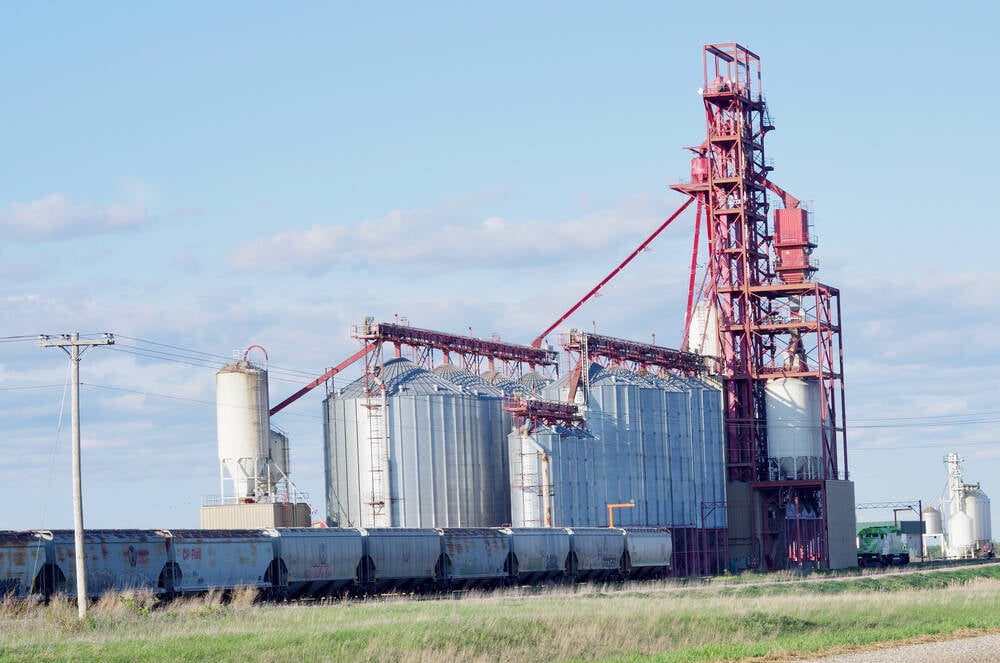
Near record September major grain deliveries: Statistics Canada
Canadian farmers made heavy deliveries of grains and oilseeds off the combine and into the commercial pipeline this September, with total deliveries of the major crops up 13.3 per cent from the same month the previous year, reported Statistics Canada.
Calf markets were firm on limited buying interest. In Alberta, steers just over 600 lbs. traded from $220 to $225 while calves averaging 525 lbs. were quoted in the range of $225-$232. These cattle will hit the same market next spring when beef supplies seasonally tighten; therefore, an encouraging tone was noted but again quality was quite variable. Cow-calf producers are contending with excellent pasture conditions so there’s no incentive to move calves at this time.
Feed barley and feed wheat were under pressure this past week and crops are rated 90 per cent good to excellent across the Prairies. It’s a bin buster out there (except for southern Alberta) so this is one positive feature for the feeder market moving forward. The concern overall is that the fed cattle market has not rallied despite the positive economic data and equity markets making all-time highs. Cheap food (relative to income levels), cheap energy and low interest rates are great for the average consumer, but we need to see retail beef prices drop so that consumption increases.
— Jerry Klassen is manager of the Canadian office for Swiss-based grain trader GAP SA Grains and Produits. He is also president and founder of Resilient Capital, which specializes in proprietary commodity futures trading and commodity market analysis. Jerry owns farmland in Manitoba and Saskatchewan but grew up on a mixed farm/feedlot operation in southern Alberta, which keeps him close to the grassroots level of grain and cattle production. Jerry is a graduate of the University of Alberta. He can be reached at 204-504-8339.




